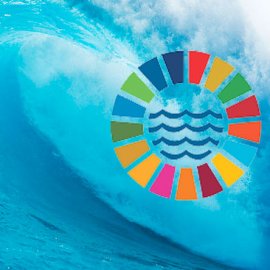The Ocean Conference Revisited
-
English
-
ListenPause
WELCOME TO WORLD OCEAN RADIO... I’m Peter Neill, Director of the World Ocean Observatory. Several weeks ago, World Ocean Radio described a forthcoming UN Ocean Conference in New York that was to bring together almost all nations with interest in policy, governance, and international cooperation for the future of our ocean world. The specific focus was on UN Sustainability Goal 14 “to conserve and sustainably use the oceans, seas and marine resources for sustainable development.” Success was to be measured by three outcomes: a renewed Call to Action, a register of voluntary actions taken or to be taken by governments, and key messages and exhortations from delegates, activists, and other interested parties regarding the growing challenges in various areas and the need for their solution. Such Calls to Action are typically built on the calls from previous conferences, modified to meet the changing circumstance. The exhortations vary; in this event focusing primarily on ocean acidification in the context of the Paris Climate Agreement; ocean litter, particularly long life and micro-plastics; and over-fishing. Some progress was reported; certain exemplary actions taken were celebrated; some satisfaction was expressed for certain projects that represent laudable incremental innovation and action. I did not attend. I did read the final conference summary report published by the Earth Negotiations Bulletin. I did stream the conference from time to time and listened to experts, colleagues, and ocean friends emphasize again the urgency and need for so many actions beyond those achieved, so much destruction to be reversed, so much scale to be faced in successfully addressing and re-dressing a global problem not easily solved. Truth is in the details, evinced by the specific actions and investments pledged by the attending nations and others. The accounting is always problematic: What funds have already been committed? What are new commitments? What commitments have been met? What commitments have not and why? Cynics abound. But we must understand that the entire enterprise is a voluntary collaboration by entities that don’t often collaborate easily or well. There is no central leadership. There is no evaluation or enforcement. No one is penalized if they fail to perform. One thing is certain: the next meeting is planned; in this case to be convened by the European Union in Malta in October of 2017, and thereafter to be hosted by Portugal and Kenya in 2020. One must respect the talent, energy, and commitment of these nations, non-governmental organizations, philanthropists, and others determined to meet the ocean challenge. One must also acknowledge the work being done by so many others – from scientists to economists to business people, to a growing community of citizens of the ocean, all contributing exponentially to this vast and necessary response. It is awesome, even as it is not enough. What to do? We ask that question every week on World Ocean Radio. And every week we come up with a different answer. That diffuse reality is evident even in the compression of a five-day international meeting of high level leaders and activists – there are so many urgent problems that require so much specific energy and skill to solve. How can we possibly prevail? I think in the premise of that question is found the single cohesive answer: that each and every one of us must become an informed agent for change in one aspect of the larger ocean response. Each of us must pick ONE issue – generally, globally, specifically, locally – and engage our many talents and actions toward that one solution. Pick yours, and by so doing, join all the participants of the UN Ocean Conference in, as General Assembly co-president Isabella Lövin of Sweden stated in her closing remarks, ““turning the tide,” by marking this the point in history when humanity, you and me, began “righting the wrongs perpetrated on our ocean.” We will discuss these issues, and more, in future editions of World Ocean Radio. - - - WORLD OCEAN RADIO IS A PROJECT OF THE WORLD OCEAN OBSERVATORY IN ASSOCIATION WITH WERU FM, BLUE HILL MAINE. WORLD OCEAN RADIO IS DISTRIBUTED BY THE PUBIC RADIO EXCHANGE AND THE PACIFICA NETWORK. FIND OUR PODCAST ON ITUNES AND AT WORLD OCEAN OBSERVATORY DOT ORG.
As a follow up to a World Ocean Radio episode from mid-May, we offer an overview of the Ocean Conference in New York last week which sought to reach outcomes toward sustainable development goal (SDG) 14: to conserve and sustainably use the oceans, seas and marine resources for sustainable development. And in this episode we encourage all listeners to become agents for change by choosing one ocean issue and investing talent and action toward a solution.
About World Ocean Radio
Peter Neill, Director of the World Ocean Observatory and host of World Ocean Radio, provides coverage of a broad spectrum of ocean issues from science and education to advocacy and exemplary projects. World Ocean Radio, a project of the World Ocean Observatory, is a weekly series of five-minute audio essays available for syndicated use at no cost by college and community radio stations worldwide. A selection of episodes is now available in Portuguese, Spanish, French, Swahili, and Mandarin, enabling us to reach 75% of the world's population. For more information, visit WorldOceanObservatory.org/world-ocean-radio-global.
Resources from this episode:
United Nations Ocean Conference
- Login to post comments



